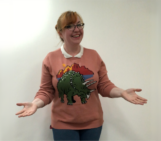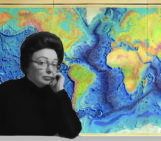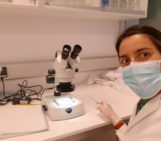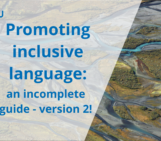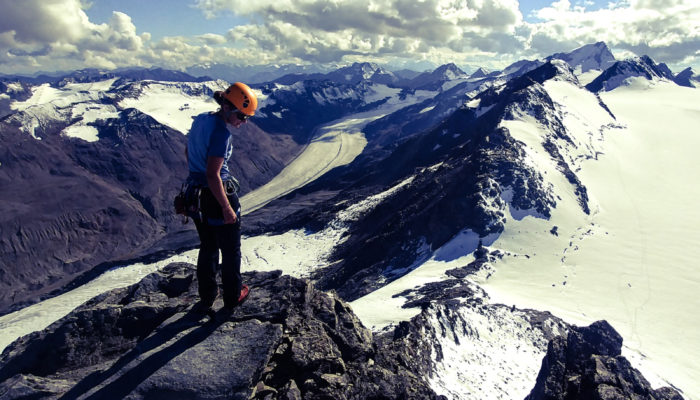
Today is International Women’s Day around the world, a day where we celebrate the progress that women, and people across the gender spectrum, have made towards gaining equity, but also take a hard look at how we can do better to support these under-represented groups in our societal structures. For scientific organizations, one of the most visible ways that we can note both the disparity between men and women, but also the slow progress towards improvement, is in the giving of awards and medals.
In science fields, research shows that although societies and organizations have made significant improvements in the number of awards being given to women (and other gender identities), these tend to be for smaller prizes or for service related awards involving mentorship or outreach. Within EGU we have also been working hard to achieve a more balanced field of medal and award winners, with 39% of awardees being female in 2020 and 49% of awardees being female in 2021.
Even the way our awards are named is important though and EGU still has a vast majority of our awards named after men, which is why today we are delighted to announce a new medal in the Tectonics and Structural Geology Division, named for Marie Tharp (who last year celebrated her centennial). Changing who our medals are named after is a vital way we can all work together to improve the diversity of people represented at this highest levels of science and research.
But why do medals and awards even matter? And what can geoscience societies like EGU do to improve our representation of women and other gender minorities? We spoke to Dr Anny Cazenave, one of the EGU’s first medal winners from 2005 when she was awarded the Arthur Holmes Medal & Honorary Membership and this year’s winner of the Union Service Award, Dr Julia C. Hargreaves, as well as the chair of EGU’s Equality, Diversity and Inclusion Committee; Dr Claudia Alves de Jesus-Rydin about the importance of equality in awards, and how it takes collective action to move forward and make changes.
More awards should be created for early career and middle career scientists, but also gender and regional diversity should be fostered.
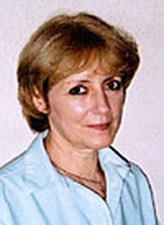 Although it is obvious that scientists do not work to receive awards or medals, because their main motivation is their passion for research, they are always happy and proud to receive awards. This contributes to their recognition by the international community (in addition to publications). It is also a pleasure for the nominators to highlight the work of their colleagues. But it is clear that both diversity of awards and diversity of winners need to improve.
Although it is obvious that scientists do not work to receive awards or medals, because their main motivation is their passion for research, they are always happy and proud to receive awards. This contributes to their recognition by the international community (in addition to publications). It is also a pleasure for the nominators to highlight the work of their colleagues. But it is clear that both diversity of awards and diversity of winners need to improve.
I think there are not enough awards appropriate for middle career scientists. Most EGU awards and medals (similarly for other geoscience organizations) recognize, essentially, mainly senior scientists for their full career achievements. Besides this issue, the number of nominations should increase. Nominating a colleague for an award is less widespread in Europe than in North America. It is a cultural issue. I don’t know however how to cope with this, but I also think we should encourage the nomination of women scientists and other researchers from the global South. Finally, the evaluation committees should not only count past awardees, but a broader diversity.
To conclude, I think that scientific societies awards are important. More awards should be created for early career and middle career scientists, but also gender and regional diversity should be fostered.
– Dr Anny Cazenave, 2005 winner of the Arthur Holmes Medal
We all have lazy internal prejudices which we need to consciously fight against when we are in a position of inviting or suggesting people for particular roles.
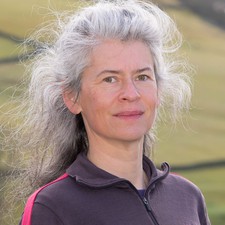 I have always thought that the best scientists are mostly the ones who are so ahead of their time that they are ridiculed during their lifetime, and not appreciated until long after they are dead, if at all. The EGU medals and awards do not find such people, but are given to those who are perceived by their colleagues to have contributed a lot to the science community in one way or another. It may be helpful to more openly acknowledge this so that we feel free to propose people who have not followed traditional paths or gained the most obvious success – after all, those obvious people already have their rewards.
I have always thought that the best scientists are mostly the ones who are so ahead of their time that they are ridiculed during their lifetime, and not appreciated until long after they are dead, if at all. The EGU medals and awards do not find such people, but are given to those who are perceived by their colleagues to have contributed a lot to the science community in one way or another. It may be helpful to more openly acknowledge this so that we feel free to propose people who have not followed traditional paths or gained the most obvious success – after all, those obvious people already have their rewards.
We all have lazy internal prejudices which we need to consciously fight against when we are in a position of inviting or suggesting people for particular roles. But, maybe the EGU understand this well enough these days? Personally, I had been feeling quite unappreciated for a number of years, and it pretty much instantly restored my faith in human nature to see how accurately my colleagues at the EGU perceive my contribution to the open science revolution!
– Dr Julia Hargreaves, 2021 winner of the Union Service Award
But it’s not just institutions who have to change, as individuals we all have a role to play too.
 Equality, diversity and inclusion (EDI) are part of the core values of EGU as a leading geoscience organisation. On International Women’s Day we are grateful for the occasion to celebrate talented women who are highly recognised scientific figures in our community. Women are a minority in the geosciences – it is a fact. Many of us will also be familiar with the expression: “If you can’t see it, you can’t be it”. As scientific evidence shows, stereotype threat is real and impactful, but we also know that countering them is possible.
Equality, diversity and inclusion (EDI) are part of the core values of EGU as a leading geoscience organisation. On International Women’s Day we are grateful for the occasion to celebrate talented women who are highly recognised scientific figures in our community. Women are a minority in the geosciences – it is a fact. Many of us will also be familiar with the expression: “If you can’t see it, you can’t be it”. As scientific evidence shows, stereotype threat is real and impactful, but we also know that countering them is possible.
Peer recognition, such as scientific awards and medals, is one of the main recompenses within the scientific system. Seeing your peers as successful role models, especially those from minorities or who are under-represented, is an essential tool to encourage game-changes in equality in science. Celebrating our women researchers as EGU medallists and award winners is thus much more than an inspirational abstract exercise. The visibility of these women is an effective way to demonstrate that EGU cares about gender parity and is committed to ensure fairness across all its activities.
But it’s not just institutions who have to change, as individuals we all have a role to play too. I therefore would plead with you all to contribute actively by NOMINATING colleagues to EGU awards – and think beyond the usual suspects.
– Dr Claudia Alves de Jesus-Rydin, chair of the Equality, Diversity and Inclusion Committee
So this year, why not #NominateHer, or a person from across the gender spectrum or an under-represented minority for one of our EGU awards or medals – nominations open today and close on the 15 June 2021.

